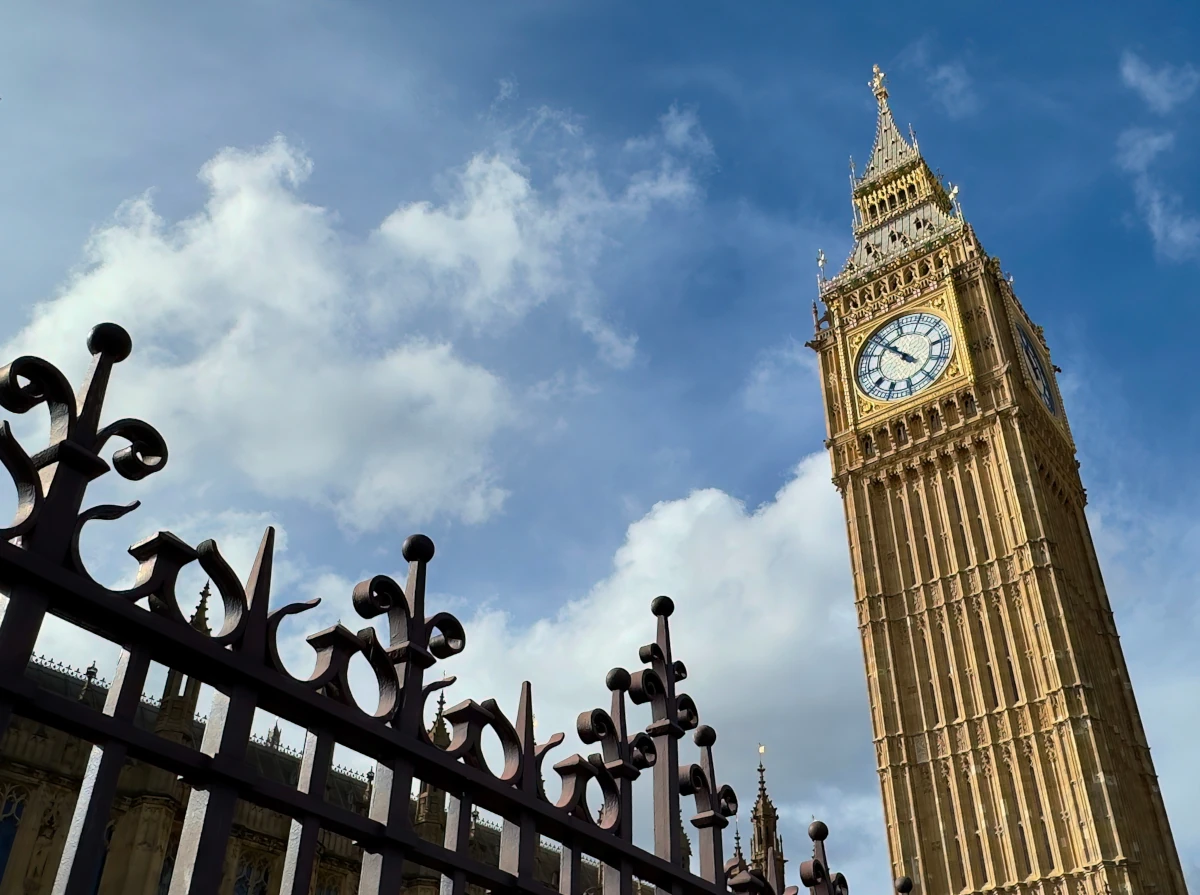
Labour’s landslide win appeared to set the stage for a more decisive push towards net zero and other environmental goals. Some had reservations too, and opinion varied on how best to set about fulfilling the pledges promised in the party’s manifesto.
The 412-seat majority suggested a mandate for change that was as strong as it gets, and as Starmer addressed cheering, flag-waving crowds outside Downing Street, environmental commentators continued to offer appraisals of the possibilities suggested by the country’s redrawn political map.
Christophe Williams, CEO of Naked Energy, was “hopeful” that “the new government will end the narrative that we need to invest in fossil fuels for energy security.”
“Now Labour is in power, they must end the subsidies on fossil fuels,” he said.
Better to focus on unleashing the potential in renewables, he suggested. When it comes to small renewable generators, what has been holding them back is “an inconsistent and uncertain investment environment”.
This was particularly true of renewable heat, and he called on the new government to bring back the Renewable Heat incentive, for businesses and homes. Heat is responsible for about 37% of total UK carbon emissions, “yet is consistently forgotten about in the rush to electrify everything.”
“We should also introduce an advantage for local suppliers, much like the Inflation Reduction Act did in the US. Giving a 10% bonus on products designed or made in the UK would provide a huge boost for renewable energy.”
Realistic plans?
Labour has promised to double onshore wind, triple solar power and quadruple offshore wind by 2030, pledges considered “commendable but very ambitious” by Jane Crichton, Associate Planning Director at Lanpro in recent weeks. “It will require a significant step up of the NSIP process and the resourcing needed to get projects from inception to delivery.”
The planning system is recognized as one of the barriers restricting the rollout of onshore wind in England, in contrast to Scotland and Wales. Labour has pledged to take the necessary steps to alter this to ensure a doubling of onshore wind capacity by 2030.
Grid capacity had also been a talking point in the manifesto appraisals preceding Thursday’s vote, with even the Conservative party’s plans deemed by energy lobbying groups as too ambitious for Britain’s current infrastructure.1 Numerous observers called for greater investment in grid capacity.
Other aspects of policy change are also promised by Labour’s promised Energy Independence Act, which is expected to establish the framework for the new government’s energy and climate policies.
Don’t forget biogas
ADBA said Labour’s plans included “key goals that can be met best through green gas expansion”, and these were specifically: energy independence (promised via the Energy Independence Act), ending river and sea pollution, and providing clean energy by 2030.
“We can build hundreds of new green gas plants by the time of the next election,” said Chris Huhne, chair of ADBA. “Green gas can and should grow faster than wind, and [is] second only to solar according to International Energy Agency projections.
“Energy from home-grown green gas will overtake energy from nuclear by 2029 on current trends. Because green gas is created by using waste streams from farming, food and industry, it is a British resource that can protect us against Putin hikes in gas prices and curb our energy imports.”
An opportunity for UK leadership
But just as important as the question of power generation, there is also the matter of how it is consumed.
Don McLean, CEO of climate tech company IES highlighted the significant contribution of buildings, when it comes to energy usage and emissions, being “responsible for 39% of global energy-related carbon emissions – with a greater proportion of this resulting from operations compared to materials and construction”.
“To fully deliver on the ambition for Britain to become a clean energy superpower, while cutting bills for people and businesses alike, we need to take a holistic approach to decarbonising how we produce and consume energy.”
“We are still a long way from finding a holistic solution to decarbonisation – not just here in the UK, but from a global perspective. This means that as a country, we have the opportunity to demonstrate leadership that others can follow. However, it is necessary to prove the decarbonisation process will work before making significant changes to millions of buildings.”
Planet Mark’s Andrew Griffiths suggested it was important not to undo progress already made.
“We need to see the Labour Government take clear, tangible steps to demonstrate its recognition of net zero as the greatest commercial opportunity of our time.”
The new government “must resist the urge to end and alter existing processes and departments established by the previous Conservative Government”. He appeared to have house room for the Department for Energy Security and Net Zero, set up last year, which was “a prime example of a great initiative that doesn’t need unnecessary interference to rebrand/restructure in sweeping ways.”
Also, the Green Skills Task Force has produced a report that “is complete, highly detailed, and full of insights and ideas from private enterprise”. Proceeding to implement these insights would be a quick win, accelerating the push for green skills.
He also wanted the new government to introduce better carbon accounting.
Circularity shortfall?
Some in the waste and resource sector felt manifestos were light on meaningful commitments to assist their own efforts. There is also the fact that, as Mark Chapman of Zero Carbon Forum pointed out, Net Zero is about much more than just an energy transition, which will focus on “about half of man-made greenhouse gas emissions”
“The other half can only be addressed by transforming to a regenerative food system and adopting a circular approach to how we make and use products and materials.”
Speaking specifically about the food and drink industry, which accounts for 35% of the UK’s carbon emissions, he said it “requires rapid and deep emissions reductions”.
Towards this end, he called on the government to support the food and drink sector “across the value chain”.
Allowing the waste sector to invest and innovate is one piece of the puzzle, as Biffa’s CEO Michael Topham suggested, in comments made to Circular Online, and key to this is “a stable and clear policy environment with realistic timetables and as much consistency as possible across all devolved nations”.
He called on the government to make the Plastics Packaging Tax more ambitious, and ban the export of unprocessed plastic waste.
Speaking about the Efw sector, he said it needs to move ahead with incorporating carbon capture and storage. Labour has made strong manifesto pledges of support for carbon capture and storage, including a promise to establish a £7.3 billion National Wealth Fund intended to support the technology, which seems likely to attract private investment.
But he also wanted to see a moratorium on new energy recovery facilities to prevent overcapacity, which tends to prevent materials moving up the waste hierarchy.
Development concerns
One topic around which there appeared to be more ambivalence about the incoming government’s plans was land and countryside issues.
Lanpro’s Anne Jennings, Associate Director of Landscape Architecture, noted that Labour had introduced the term “grey belt” into the lexicon, to refer to land within the green belt that was identified for development.
“There is a fine balance to be found between the understandable aim of addressing the housing need and continuing to release green belt land for development, no matter what its colour-delineation.
“This is a thorny issue with many opinions and concerns but Labour commit [to] taking a more strategic approach underpinned by ‘golden rules’ announced in April.”
Hannah Scott, CEO of Oxfordshire Greentech, said: “I am deeply concerned by Labour’s election pledge to prioritize the release of lower grade green belt land for development.”
“The so-called ‘grey belt’ often provides essential ecological services and green space for communities.
“Labour’s true priority should be retrofitting heat pumps in social housing, eradicating fuel poverty, and creating a national energy infrastructure that is affordable and provides comfort for everyone.
“True sustainability requires innovative urban planning that respects and integrates our natural landscapes, rather than sacrificing them for short-term gains.”
“As a matter of urgency, the Labour Party must tackle the housing crisis by redeveloping derelict and underused commercial buildings into social or affordable housing while also taking stricter enforcement action against empty housing and foreign investment in residential property, where the “buy-to-leave” phenomenon is jeopardising affordability in high demand areas like London.”
Countryside charity CPRE’s Elli Moody said: “We want the new government to show that it recognises the value of the countryside and the people who live there. By committing to a new spatial plan for renewable energy infrastructure, ambitious targets for more social homes and a planning system with local communities at its heart, they would have the opportunity to do just that.”
Notes
[1]”INTERVIEW – Energy secretary says UK must be pragmatic”, Montel Group, 3 July 2024. https://montelnews.com/news/516524ab-3810-4449-9967-78c002d38598/interview-energy-secretary-says-uk-must-be-pragmatic







